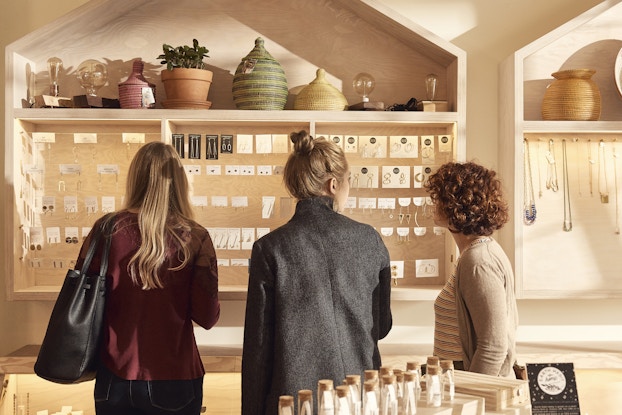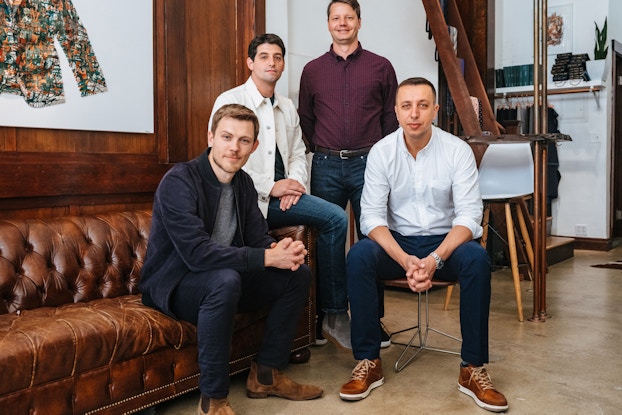
Online marketplace Faire went from startup to a unicorn valued at $1 billion in just three years by betting big on the resilience of America’s smallest retailers.
Now, as the COVID-19 pandemic sidelines those store owners, Faire is betting on their ability to come back strong after the crisis passes.
In February, before the full impact of the crisis had hit the United States, Faire was preparing to launch new payment and marketing tools to help its retail clients. In March, it quickly reacted by adding resources specifically designed to address the impact on small retailers.
Faire CEO and co-founder Max Rhodes told CO— he is “really hopeful and optimistic” about the strength of small stores in the face of a crisis.
“I believe in small businesses and their ability to get through this, and to make good financial decisions now and to support their communities in whatever way they can, to hustle and be resourceful,” Rhodes said.
“We’re going to drive the demand, and then once things come back online, we’re going to make sure they have the products that customers want,” he said. “We’re going to give them everything they need to get through this.”
Since its launch in 2017, Faire’s business model has been built around giving mom-and-pop shops and small retailers resources to help them compete with Amazonand the large mass-market retail chains.
“We’re giving local retailers the benefits that traditionally have only been available to the largest chains,” Rhodes said.
“We’re giving them access to capital, we’re giving them free returns, and now we’re helping them make decisions with data,” Rhodes said. “Large chains traditionally have been able to look across hundreds of locations and see what’s working, whereas local retailers are really making their decisions in a silo.”

Giving buying power to mom-and-pop shops
Faire lets small stores leverage their buying power and get access to more craftspeople and small manufacturers, with Faire facilitating the ordering, payments and returns.
By helping independents buy collectively, Faire gets better prices for mom-and-pop shops, and takes the risk out of ordering by allowing stores to return unsold merchandise.
Since its launch, it has sold more than 25 million products through its website. More than 70,000 local retailers in the United States and Canada are using the platform.
In March, Faire announced enhancements to its web platform to help both the retailers who buy products through Faire, and the manufacturers and craftspeople who use Faire to sell their products.
It also reacted to the COVID-19 crisis by adding a financial calculator tool that helps businesses measure their financial health and calculate the impact of lost sales. The tool also recommends COVID-19 resources available for small businesses.
The other enhancements Faire announced in March expand the ways independent stores can use the Faire platform.
Retail clients who use the payment processing system Square can link their Square account with Faire to get data on how products are selling, and which items are likely to sell out.
For the manufacturers, or “makers,” as Faire calls them, the platform has added a link that lets retail accounts connect directly to Faire from the maker’s website. It also has given makers the ability to send custom email marketing campaigns to Faire’s retail store clients.
We’re giving local retailers the benefits that traditionally have only been available to the largest chains.Max Rhodes, co-founder and CEO, Faire
Coronavirus Guide for Small Businesses
CO— is working to bring you the best resources and information to help you navigate this challenging time. Read on for our complete coronavirus coverage.
The ‘Blunt Umbrella’ that led to Faire’s indie retail marketplace model
The inspiration for Faire came from lessons Rhodes and his partners learned while trying to market a high-end umbrella from New Zealand, the Blunt Umbrella, in the U.S.
“All we talked about was, ‘How do we get into Nordstrom, how do we get into REI, how do we get into Neiman Marcus?’” Rhodes said. They discovered, however, that even when they landed those big retail accounts, the umbrella sold better in independent boutiques.
The partners decided to double-down on the independent retail channel, but saw “it was just really hard to reach any kind of scale there because it’s so fragmented.”
That led them to create a way to make the independent retail marketplace easier for both the retailers and the suppliers.
Liane Fried, owner of Liane Fried Studio, is a New Jersey-based artist who creates whimsical home décor items and gifts that sell primarily in museum shops and independent gift stores. She was among the first makers to join the Faire platform soon after it launched.
“I like them very much,” said Fried. The platform saves her credit card fees because she is paid directly by Faire for retail orders, rather than having to bill stores individually.
When Faire generates new store accounts for her, she pays a 25% commission on sales. But Faire does not charge a commission for processing orders for store accounts she had prior to joining Faire, or accounts she acquires through her own website, or marketing.
“The only possible downside to Faire is sometimes they deal with shops that are very new,” or that might not have experience selling gift merchandise, such as a hair salon, Fried said.
Faire has focused on gift shops for its retail partners, but it is looking to expand in other categories, Rhodes said.
“One of the things we’ve found is that the Faire model can be applied across basically every segment of local retail,” Rhodes said.
Faire is adding more apparel offerings this year, because it has seen that apparel shops are already a big segment of its gift sales.
“I think we have close to 10,000 apparel boutiques that are buying from us,” he said.
Hardware stores, home décor stores, pet shops and toy stores are other categories where Faire sees room for growth.

The small retail market is big business
According to the National Retail Federation, the United States has close to three million small retailers with fewer than 10 employees, accounting for 91% of the retail businesses in this country.
Faire hopes to expand beyond North America and sell to European retailers. It recently added products from 1,000 international manufacturers and makers to its website to help U.S. stores source international products.
The company declined to reveal its annual sales, but said during the peak holiday sales season last fall, sales were coming in at a rate of $1 million a day.
Faire achieved unicorn status with its latest $150 million Series D funding round last fall, which valued the company at $1 billion.
CO—is committed to helping you start, run and grow your small business. Learn more about the benefits of small business membership in the U.S. Chamber of Commerce, here.







